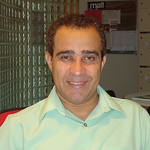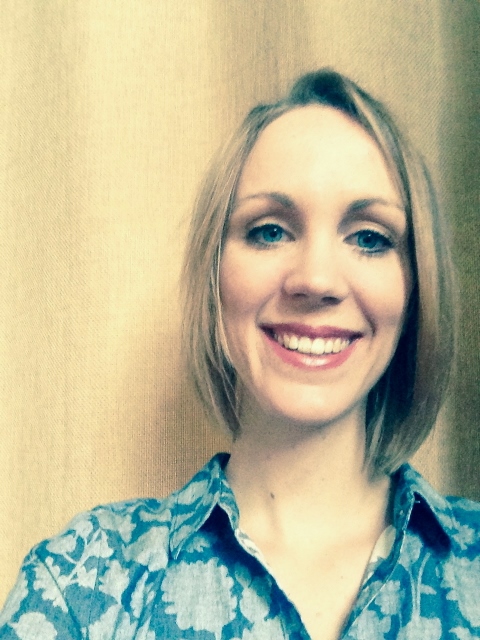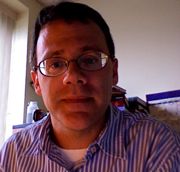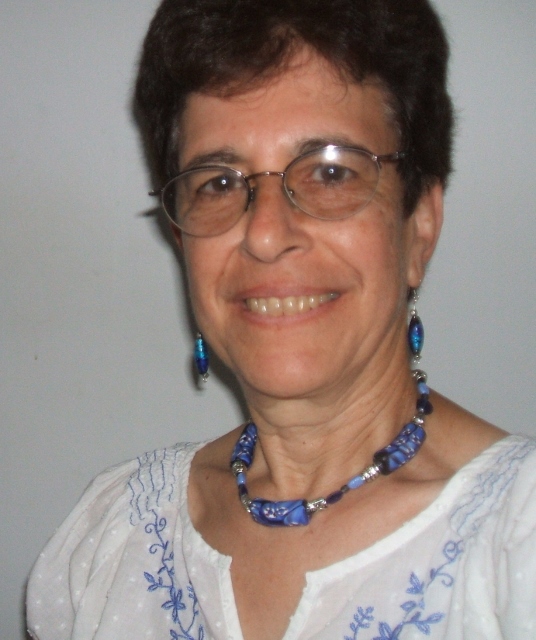For each newsletter, I invite members to answer a set of questions:
- What is your favorite platform?
- What is the one indispensable tool/webpage?
- What is your most unexpected source of information about CALL?
- What was your favorite CALL creation?
- What are you working on now?
- What area would you like to see developed/researched?
- In a sentence, what advice would you give to a newbie starting out in CALL?
I hope you enjoy this space to compare experiences, share
advice, nurture inspiration, and make connections within our
community.
Please e-mail me at Suzan Stamper if
you have suggestions or contributions to "Making Connections."
José Antônio da Silva
 José Antônio da Silva holds an MA in TESOL from Oklahoma City
University. He has been an EFL teacher for over 25 years and currently
teaches at Casa Thomas Jefferson in Brazil where he is part of the
EdTech Team, and as such, is constantly training teachers in the use of
computer assisted language learning. José Antônio da Silva holds an MA in TESOL from Oklahoma City
University. He has been an EFL teacher for over 25 years and currently
teaches at Casa Thomas Jefferson in Brazil where he is part of the
EdTech Team, and as such, is constantly training teachers in the use of
computer assisted language learning.
E-mail: joseaokc@yahoo.com
Affiliation: Casa Thomas Jefferson, Brazil
Years in the CALL-IS: Indirectly since 2006 when I started
taking sessions in the EVO. In 2014, I attended my first TESOL
Conference on a scholarship and gave two presentations at
CALL.
Q: What is your favorite platform?
A: Google Apps for Education because it includes Google Sites,
Google Forms, Google Slides, and so on. (See https://www.google.com/edu/products/productivity-tools/)
Q: For you, what is the one indispensable tool/web page?
A: A wiki is an indispensable tool. It is the ideal place for collaboration.
Q: What is your most unexpected source of information about CALL?
A: One of the most unexpected sources for me is Flipboard
(https://flipboard.com/). It is my daily news and I always find out
about improvements in old tools/platforms and new developments while
reading my feeds on it.
Q: What was your favorite CALL creation?
A. My favorite CALL creations so far have been my wikis on
PBworks (http://www.pbworks.com/) for
my students. I am also very proud of one I co-created while taking an
online course at http://eflreading.pbworks.com/
Q: What are you working on now?
A. Right now, I am working on a flipping project and mobile
learning. I am also involved in the maker movement and I am trying to
mix digital and physical making.
Q: What area would you like to see developed/researched?
A: I would like to see more development in platforms for augmented reality.
Q: In a sentence, what advice would you give to a newbie starting out in CALL?
To those just starting out, I would say “Be fearless and dare
to explore all the possibilities CALL offers to you.”
Katie Mitchell
 Katie Mitchell develops CALL materials at Rosetta Stone. Before
working at Rosetta Stone, she received her Masters in TESOL and taught
adults in the United States and abroad. She is currently on the CALL-IS
steering committee. She is interested in second language writing
instruction, educational games, digital literacy, and computer assisted
language learning. Katie Mitchell develops CALL materials at Rosetta Stone. Before
working at Rosetta Stone, she received her Masters in TESOL and taught
adults in the United States and abroad. She is currently on the CALL-IS
steering committee. She is interested in second language writing
instruction, educational games, digital literacy, and computer assisted
language learning.
E-mail: kmitchell@rosettastone.com
Affiliation: Rosetta Stone
Years in the CALL-IS: 5 years
Q: What is your favorite platform?
A. To be honest, I’d have to say mobile. It’s amazing what we
can do with our smart phones now. I have to work very hard not to be
glued to my iPhone.
Q: For you, what is the one indispensable tool/web page?
A: The ability to self publish is so powerful. That can mean
wikis or Google sites or so many other things, but together they let
students and teachers be more in control of the content.
Q: What is your most unexpected source of information about CALL?
A: Games. Although I’m not an avid gamer, I find myself often inspired by them.
Q: What was your favorite CALL creation?
A: I developed a vocabulary component for an Academic English
program in Germany. It used (manual) spaced repetition and had an
extensive online component with corpus-based activities and other
practice.
Q: What are you working on now?
A: I am working on a business English reading course. I’m
geeking out about tools that help determine text difficulty. It’s
amazing that one of the first of these, the Gunning Fog Index, was
developed in the 50s, but there’s still so much room for improvement.
Q: What area would you like to see developed/researched?
A: Simulations and games. I think there is so much potential to
capture both the short bursts of activity people have on their phone
and the hours of serious gaming people do in their free time.
Q: In a sentence, what advice would you give to a newbie starting out in CALL?
A: Write to the CALL-IS Listserv. There are so many people on
there just waiting to discuss anything related to CALL.
John P. Madden
 John P. Madden is an associate professor of applied linguistics
at St. Cloud State University. His interests include listening
comprehension, computer-assisted language learning, service learning,
and teacher education. He's a past chair of the CALL-IS. John P. Madden is an associate professor of applied linguistics
at St. Cloud State University. His interests include listening
comprehension, computer-assisted language learning, service learning,
and teacher education. He's a past chair of the CALL-IS.
E-mail: jpmadden@stcloudstate.edu
Affiliation: St. Cloud State University, Department of English, Minnesota, USA
Years in the CALL-IS: Not sure -- possibly since I joined TESOL in 1996, so that would be 18-19 years.
Q: What is your favorite platform?
A: Mac, but I like Windows and Linux, too.
Q: For you, what is the one indispensable tool/web page?
A: Anything that supports communication and interaction ---
such as the Internet, word processors, web browsers, audio and video
recorders/players -- while supporting users' privacy and freedom of
action -- would be close to indispensable.
Q: What is your most unexpected source of information about CALL?
A: All sources are welcome. I read and listen to popular and
scholarly sources. My students, colleagues, friends, and family all give
me good information, too.
Q: What was your favorite CALL creation?
A: I don't really have a favorite. As above, anything that supports
interaction and learning, while being useful, and supporting users'
privacy is a potential favorite. Typically on my home and school
computers, I have word processors/office suites (Open Office, MS Office,
Apple's iWork), a sound recorder (Audacity), and web browsers with
plugins. I'm also interested in corpus analysis (AntConc, by Lawrence
Anthony), qualitative data analysis (TAMS Analyzer, by Mark Weinstein)
and quantitative analysis (I'm working on learning more about R.). But I
don't have a favorite. Q: What are you working on now?
A: I'm interested in digital literacy and how that relates to
how we learn language and come to understand each other.
Q: What area would you like to see developed/researched?
A: How do teachers develop digital literacy?
Nina Liakos
 Nina Liakos grew up in the pre-computer era in New Jersey; went
to college in Rochester, NY; lived for three years in Paris, France
(where she started teaching EFL); and taught in various intensive
English programs in the Washington, DC area from 1974-2015, mostly at
the University of Maryland's Maryland English Institute. She first
became involved with CALL after participating in the EVO 2006 session,
"Becoming a Webhead" (BaW06). Nina Liakos grew up in the pre-computer era in New Jersey; went
to college in Rochester, NY; lived for three years in Paris, France
(where she started teaching EFL); and taught in various intensive
English programs in the Washington, DC area from 1974-2015, mostly at
the University of Maryland's Maryland English Institute. She first
became involved with CALL after participating in the EVO 2006 session,
"Becoming a Webhead" (BaW06).
E-mail: nina.liakos@gmail.com
Affiliation: none (I just retired)! Former affiliation: University of Maryland, Maryland English Institute
Years in the CALL-IS: 8 years from 2007 – 2015
Q: What is your favorite platform?
A: I guess Blogger (https://www.blogger.com/) and WordPress
(https://wordpress.com/website/). I created my first
blog during the BaW2006 session and have since created thirty
Blogger blogs, including class blogs, blogs to support conference
presentations and EVO sessions I participated in, a travel blog, and
team blogs for webheads attending the annual TESOL convention (see the
most recent one here). In addition to these mostly
temporary blogs, I also maintain two on-going WordPress blogs: my reading
blog and my nature
diary.
Q: For you, what is the one indispensable tool/web page?
A: See above (Blogger and WordPress). But my favorite website
is TED
(http://www.ted.com/), both for myself and for students. Students can
scaffold talks with judicious use of captioning and their L1 and in
English; with practice, they can dispense with the captions and just
listen. It's great listening practice, plus you always learn something
new, interesting, or funny.
Q: What is your most unexpected source of information about CALL?
A: I don't know about unexpected, but recently I have learned a
lot from Vance Stevens' newest adventure in free online professional
development, Learning2gether. Almost every Sunday and
many other days as well, Vance arranges webinars, interviews, and
conversations with webheads and others who are doing interesting things
with technology in educational settings. (If you can't make the live
webcast, you can always check out the recordings afterwards.) It's
informal and fun; listeners can take part in a free-wheeling
conversation with Vance and his guest(s) in a Google hangout or other
venue.
Q: What was your favorite CALL creation?
A: I suppose it was the first
"Webheads & Friends" blog that I created for the TESOL
Convention in Seattle in 2007, where I first met so many webheads face
to face. Unfortunately, most of the photos that made the blog so lovely
vanished when BubbleShare went offline. For teaching, I have created
many blogs and wikis to support classes; one of my favorites was the one
I made for a beginner's reading/writing/grammar class at Maryland
English Institute in 2013, which drew heavily on YouTube videos to
support grammar lessons <http://001rwg2013spr.blogspot.com/>.
Sadly, most of the links and embedded videos no longer work.
Q: What are you working on now?
A: Although I'm now retired, I am still a member of the EVO
Coordination Team, which I led for the past two years. The EVO pioneered
open, free professional development before anyone had ever heard of
MOOCs, and we are still one of the best PD opportunities in the ESL/EFL
universe! Those who participate actively in an EVO session can learn so
much while getting to know colleagues around the world.
Q: What area would you like to see developed/researched?
A:I t looks like the coming thing is all about mobile devices. I
finally broke down and got my own smart phone last December, but never
used it for teaching (and being retired will probably not have the
opportunity to do so). I know there's a lot of potential there, and all
students here have smart phones (both adults and college-bound
students).
Q: In a sentence, what advice would you give to a newbie starting out in CALL?
A: Technology doesn't make anybody learn better--but it can
make learning more fun, and as teachers we need to help our students
develop multiple literacies so that they can use technology
safely.
NOTE: This article has not been copy edited due to its length.
Suzan is Senior Lecturer and English Language Team Leader at Yew Chung Community College in Hong Kong. She has been a CALL-IS member since 1995.
| 
